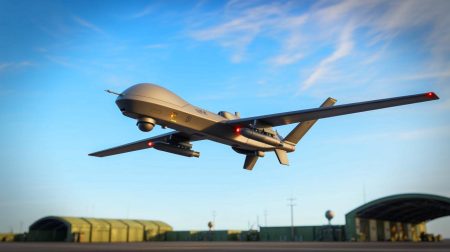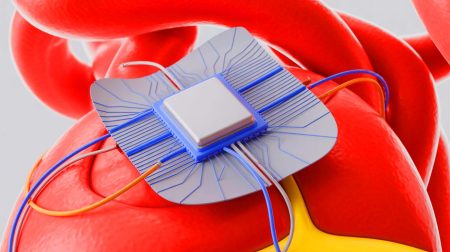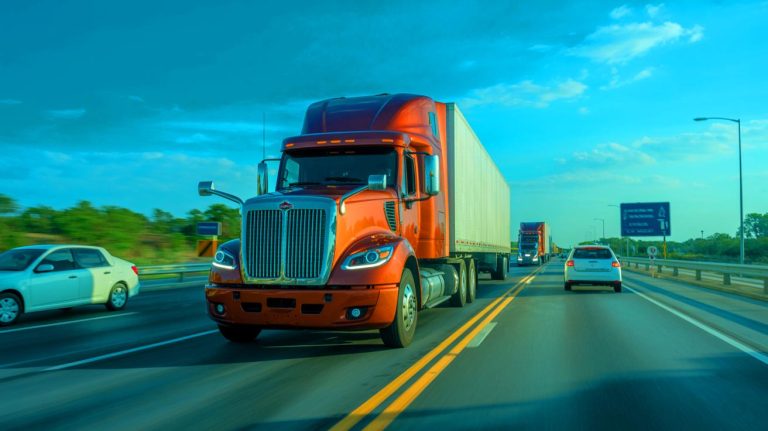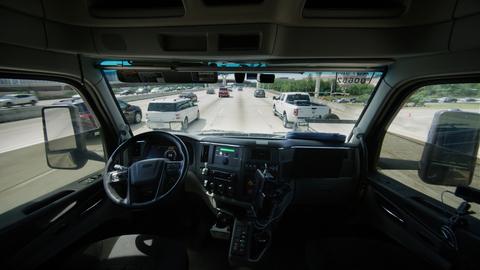| IN A NUTSHELL |
|
The world of trucking is undergoing a revolutionary transformation, thanks to the advent of autonomous technology. At the forefront of this change is Aurora, a Pittsburgh-based startup that has recently launched a groundbreaking self-driving trucking service in Texas. This innovative venture marks a historic milestone, as Aurora becomes the first company to commercially operate self-driving heavy-duty trucks on public roads. With over 1,200 miles of real-world conditions already covered, Aurora’s trucks are now successfully navigating the busy routes between Dallas and Houston, hinting at a future where technology redefines the logistics industry.
The First Autonomous Heavy-Duty Trucks
Aurora’s self-driving technology, known as the Aurora Driver, is a sophisticated suite that leverages more than two dozen sensors, including LiDAR, radar, cameras, and microphones. This array of sensors, along with an onboard computer, provides the truck with a comprehensive understanding of its surroundings, allowing it to detect and respond to road conditions with remarkable precision. Aurora’s proprietary LiDAR technology is capable of seeing over 1,476 feet ahead, giving the truck the ability to spot pedestrians up to 11 seconds earlier than a human driver, an advantage that is especially crucial during nighttime operations.
Chris Urmson, the CEO and co-founder of Aurora, was present for the inaugural trip between Dallas and Houston. Reflecting on the successful journey, Urmson shared, “Riding in the back seat for our inaugural trip was an honor of a lifetime – the Aurora Driver performed perfectly and it’s a moment I’ll never forget.” This significant achievement underscores Aurora’s pioneering role in deploying self-driving trucks for commercial use, paving the way for broader adoption of autonomous technology in the trucking industry.
Tech Partnerships and Future Expansion
Aurora’s strategic partnerships with major truck manufacturers like Volvo and PACCAR play a crucial role in the integration of its autonomous technology into existing freight vehicles. This collaboration ensures that the Aurora Driver system can be seamlessly added to OEM trucks, thereby enhancing the reach and applicability of self-driving technology in the trucking sector. Such partnerships are essential for fostering industry-wide adoption and innovation.
Looking ahead, Aurora plans to expand its operations to El Paso, Texas, and Phoenix, Arizona, by year-end. The company is also focused on enhancing its technology to enable trucks to operate at night, during rainy weather, and across more lanes of the US Interstate system. While these advancements could potentially reshape the trucking industry, Aurora is committed to ensuring that the transition does not immediately disrupt jobs. According to a 2021 US Department of Transportation report, the automation of long-haul trucking is expected to lead to a gradual reduction in jobs, rather than an abrupt change. Displaced drivers may find opportunities in short-haul driving, which remains less suited to automation.
Ensuring Safety and Reliability
The deployment of self-driving trucks is accompanied by rigorous safety protocols and reliability tests. Aurora places significant emphasis on ensuring that its autonomous vehicles adhere to the highest safety standards. The company’s testing regime includes extensive simulations and real-world trials designed to address potential challenges and optimize the performance of the Aurora Driver system. By prioritizing safety, Aurora aims to build trust among stakeholders and the general public, fostering acceptance of autonomous vehicles on public roads.
Moreover, Aurora’s technology is designed to handle diverse driving conditions and scenarios, ensuring that the trucks can operate effectively under varying circumstances. The ability to navigate complex traffic situations and respond to unexpected events is crucial for the success of self-driving trucks, and Aurora’s commitment to safety underscores its dedication to achieving these goals.
The Impact on the Trucking Industry
The introduction of self-driving trucks heralds a new era for the trucking industry, with far-reaching implications for logistics, transportation, and employment. By automating long-haul routes, Aurora’s technology promises to enhance efficiency, reduce operational costs, and improve delivery times. These benefits are likely to drive significant changes in supply chain management, offering companies a competitive edge in an increasingly fast-paced market.
However, the shift towards automation also raises important considerations regarding workforce dynamics. While the technology offers numerous advantages, it is crucial for stakeholders to address the potential impact on employment. By facilitating the transition of long-haul drivers to short-haul roles and investing in retraining programs, Aurora and its partners can help mitigate the challenges associated with this technological shift. As the industry evolves, it remains to be seen how these changes will shape the future of trucking and the broader economy.
As Aurora’s self-driving trucks continue to traverse the roads of Texas, the implications of this technological advancement are vast and multifaceted. The transformation of the trucking industry is underway, promising increased efficiency and new opportunities for growth. However, it also poses challenges that require careful navigation to ensure a balanced transition. As we stand at the cusp of a new era in transportation, one must wonder: How will the rise of autonomous vehicles redefine our approach to logistics, employment, and technology in the years to come?
Did you like it? 4.4/5 (26)











Wow, an autonomous 18-wheeler! What’s next, self-driving pizza delivery? 🍕
How does Aurora handle unexpected road conditions? 🤔
Thank you, Aurora, for leading the way in autonomous trucking technology!
Are these trucks really safe enough for mass deployment?
How do they ensure the safety of other drivers on the road?
Autonomous trucks in Texas? Hope they can handle cowboy hats on the dashboard! 🤠
This is great, but what about the truckers who might lose their jobs?